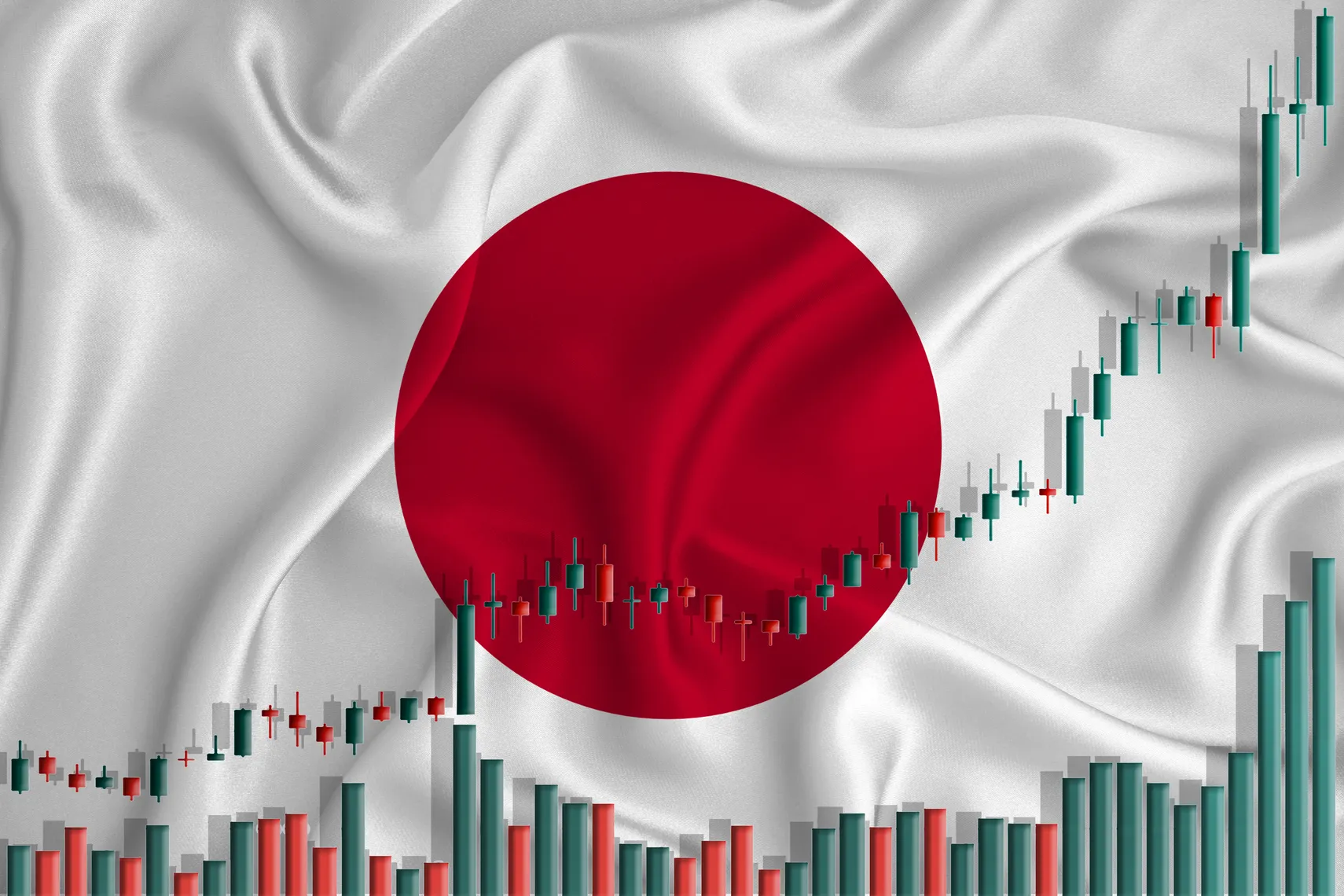How to invest in Japanese stock CFDs – Japan 225 index
Japan’s stock market provides access to established and internationally recognised companies that remain competitive across technology, consumer goods and manufacturing.
Shares of some of the world’s best-known brands are traded on Japan’s equity markets, including Sony Group (6758), Honda Motor (7267) and Panasonic Holdings (6752) – all key components of Japan’s leading stock index, the Nikkei 225 (Japan 225).
While many developed markets have faced sustained volatility in recent years, Japanese equities have shown relative resilience, supported by stable policy, corporate earnings and a weaker yen. Here’s an overview of how to invest in Japan’s stock market.
Japan stock market overview
Japanese stocks are traded on the Tokyo Stock Exchange (TSE), part of the Japan Exchange Group (JPX). The JPX was formed in 2013 through a merger of the Tokyo Stock Exchange Group and the Osaka Securities Exchange.
As of November 2025, the JPX lists over 3,900 companies, making it the world’s third-largest equity market by market capitalisation, after the New York Stock Exchange (NYSE) and the Nasdaq stock market.
The TSE’s flagship benchmark, the Nikkei 225 (Japan 225), tracks 225 blue-chip companies and has been a key measure of Japan’s market performance since 1949. The index is price-weighted and rebalanced annually, with technology accounting for approximately 49%, consumer goods 23%, and materials 13%.
On 6 November 2025, the Nikkei 225 closed at 50,883.68, up 1.34% for the day and 27.8% year on year. The Topix index ended at 3,313.45, up 1.38% and 19.1% year on year. The Nikkei 225 recently reached a record high of 52,664 on 5 November 2025 before moderating on profit-taking.
Japan’s market rebound has been supported by optimism in US equities, solid domestic data and positive corporate results.
Past performance is not a reliable indicator of future results.
Go to market page
Macro themes shaping Japan's market
- Yen depreciation: The Japanese yen (JPY) remains weak, with the USD/JPY above 150, benefiting exporters such as Sony and Honda. While this supports export competitiveness, currency conversion can reduce returns for foreign investors when repatriating profits.
- Stable monetary policy: The Bank of Japan (BoJ) maintains its policy rate at -0.1%, diverging from the tightening seen in other major economies. This approach supports stock valuations and borrowing conditions but can contribute to currency volatility.
- Economic resilience: Japan’s economy has outperformed expectations through 2025, with the Citigroup Economic Surprise Index indicating stronger-than-forecast data since mid-year.
How to invest in japanese stocks
There are several options for those interested in gaining exposure to the Japan stock market.
Direct stock purchase
Domestic and international investors can buy Japanese shares directly through local or global brokers. Many international platforms provide access to Japan-listed stocks, while American Depositary Receipts (ADRs) – such as Sony and Panasonic – offer exposure through US markets.
ETFs and mutual funds
Exchange-traded funds (ETFs) and mutual funds provide diversified access to Japanese companies. Funds tracking the Nikkei 225 or Topix indices are widely available, offering broad market exposure.
CFDs (contracts for difference)
Traders can also speculate on Japan’s stock market via contracts for difference (CFDs). These allow participation in price movements of indices such as the Nikkei 225 or individual companies like Honda, Sony and Nintendo, without owning the underlying shares.
Risk associated with investing in Japan stocks
Traders and investors should be aware of the risks associated with investing in Japanese companies, from macroeconomic climate, to currency risks.
- Global economic conditions: Slower global growth or a potential recession could affect Japan’s export-driven economy. Although domestic fundamentals remain stable, external demand remains a key variable.
- Currency volatility: A prolonged period of yen weakness supports exporters but may create challenges for foreign investors once profits are converted back into home currencies.
- Policy uncertainty: While the BoJ remains committed to its current stance, any future adjustment to its ultra-loose monetary policy could affect valuations and currency movements.
- Market fluctuations: Japan’s equity indices can experience sharp short-term movements, influenced by global sentiment, corporate earnings and shifts in foreign capital flows.
Final thoughts on investing in Japan stocks
Japan’s stock market continues to attract global interest, supported by strong corporate performance and well-established global brands. However, trading or investing in Japanese equities involves market, currency and policy-related risks.
Always carry out your own research, reviewing the latest news, data and independent analysis before making any trading decisions.
Past performance is not a reliable indicator of future results. Trading CFDs is risky. Refer to our PDS & TMD.
Create an account Open a demo account
FAQ
What is the best way to invest in Japanese stocks?
Every investment instrument has its own advantages and disadvantages, and all involve risk. It’s important to research different options carefully and decide which approach best suits your level of experience, financial goals and risk tolerance.
Is it safe to invest in Japanese stocks?
No investment is completely without risk. The Japanese stock market, like all others, can be affected by changes in economic conditions and investor sentiment. You should stay informed with reliable, up-to-date data and consider the potential risks before making any investment decisions.
How can a foreigner invest in the Japanese stock market?
Foreign investors can access Japan’s stock market through domestic brokerages that accept overseas clients or through international platforms offering Japanese equities. Another option is to invest in exchange-traded funds (ETFs) that track major indices such as the Nikkei 225 or Topix, providing broader and more diversified exposure to Japanese companies.